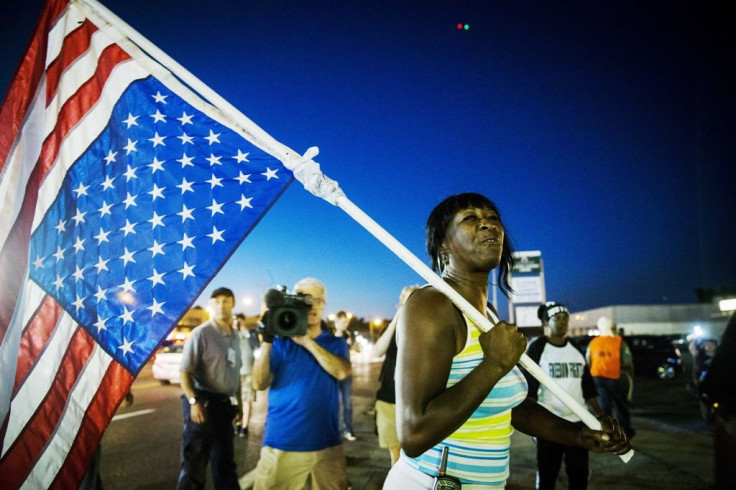Ferguson City Council, US Justice Department Agreement: DOJ Threatens Legal Action After Changes Sought In Reform Plan

The U.S. Department of Justice said early Wednesday that the city council of Ferguson, Missouri, created an “unnecessary delay” to agree to reforms in police and court systems, after the 2014 fatal police shooting of a black teenager. The city council voted Tuesday to approve the agreement with the justice department, but asked for several changes that still require federal approval.
The council for the St. Louis County agreed with the basic proposals, including requirement of the police department to give officers bias-awareness training and enforce an accountability system. The department would have to make sure that police’s decision on searching and arresting an individual is not based on race or other factors protected under law, Reuters reported. Under the settlement, the city would have to change its municipal code, including sections that impose prison time for failing to pay fines, the report added.
However, the council also asked for several other reforms, including no raise in police salaries. It also said that fire departments' salaries be raised, which could cost the city about $1 million annually, the Associated Press (AP) reported.
“The Ferguson City Council has attempted to unilaterally amend the negotiated agreement. Their vote to do so creates an unnecessary delay in the essential work to bring constitutional policing to the city, and marks an unfortunate outcome for concerned community members and Ferguson police officers," Vanita Gupta, head of the Justice Department's Civil Rights Division, said in a statement. "The Department of Justice will take the necessary legal actions to ensure that Ferguson’s policing and court practices comply with the constitution and relevant federal laws,” she added.
Ferguson, which has an African-American population of more than 67 percent, would routinely ticket and fine its residents, including teenagers, for offenses such as traffic violations and jaywalking, according to a report compiled by DOJ. When they could not afford to pay the associated fines and court fees, warrants for their arrests were issued. The intentional, concerted practice of racial profiling by both local government and its police force netted the city millions of ill-gotten dollars.
However, the city came under scanner after the August 2014 fatal shooting of 18-year-old Michael Brown by white police officer Darren Wilson during a confrontation. Wilson, who later resigned from police force, was cleared of any wrongdoing by both a St. Louis County grand jury and the DOJ. The shooting triggered nationwide protest and concerns over the police force’s bias against minorities. The city’s police force at the time of Brown’s shooting had 56 officers, three of whom were black.
© Copyright IBTimes 2024. All rights reserved.





















